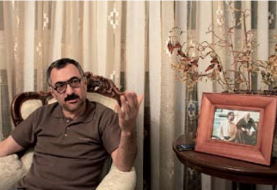February 14-2014

. . . record-setter
Iran has become the single most corrupt country in the entire Middle East, according to Saeed Leylaz, an economist who was imprisoned for criticizing former President Ahmadi-nejad’s economic policies.
In a recent interview, Leylaz said the Rohani Administration must act quickly to address the country’s economic problems.
“We have turned into the most financially corrupt country in the history of the Middle East,” Leylaz told Jahan-e Sanat (World Industry), a daily that focuses on economic news. “I cannot recollect such a wave of corruption and plunder in any other country.”
Leylaz said, “What we see of corruption is the tip of the iceberg. It is important that Rohani tries to slow down the speed of this corruption.”
He said that while corruption is continuing, at least “it is decreasing because the resources have diminished and the laws are currently being reformed.”
Leylaz said some of the corruption of the previous administration was based on accounting practices. He cited the sale of petrochemical feedstock at $18 per barrel of oil instead of $100 per barrel as “institutionalized plunder and grand theft.”
Asked how Rohani can “confront” corrupt people, Leylaz said, “I am not in favor of confronting them. We are not seeking a new collision.”
He said, “It is not necessary” to punish those who have committed corruption, but rather “it is important to cease the plunder.” In other words, he emphasized new government policies that would pull the rug out from under corruption rather than police work aimed at putting plunderers in prison.
Leylaz said the first thing the Rohani Administration needs to do is “reform the laws and evasion of laws.” He said the presence of the government in fields such as petrochemicals, telecommunications and the price of plane tickets must be “dismantled.”
“It’s clear that any owner of a mine becomes a millionaire overnight. These were concessions the [Ahmadi-nejad] Administration gave to special groups. On the other side, the overnight and ad hoc decisions on tariff rates and import rules resulted in billions of dollars being exchanged. It is enough just to look to the sudden changes on tariffs for meat, fruit and cellphones.”
He said, “The actions of the last eight years put the entire system in danger,” but if government institutions work together, within 18 months, many of the rent-seeking issues can be resolved.
While he acknowledged that sanctions have hurt the economy, he stressed that better domestic management could have addressed many of the challenges.
